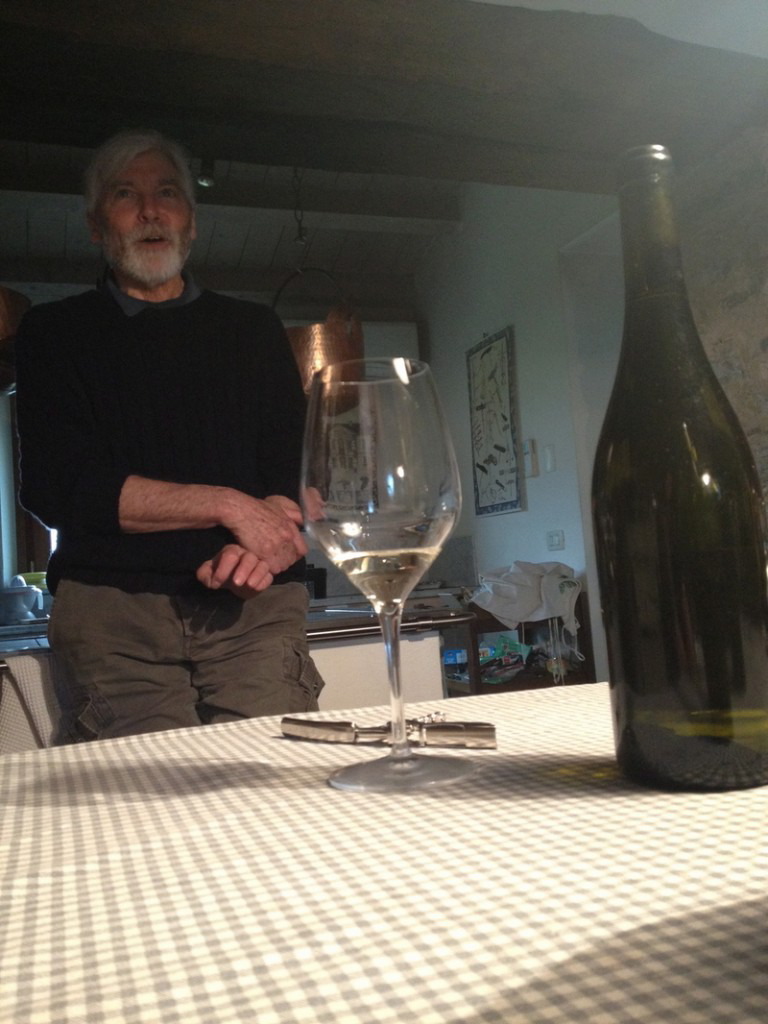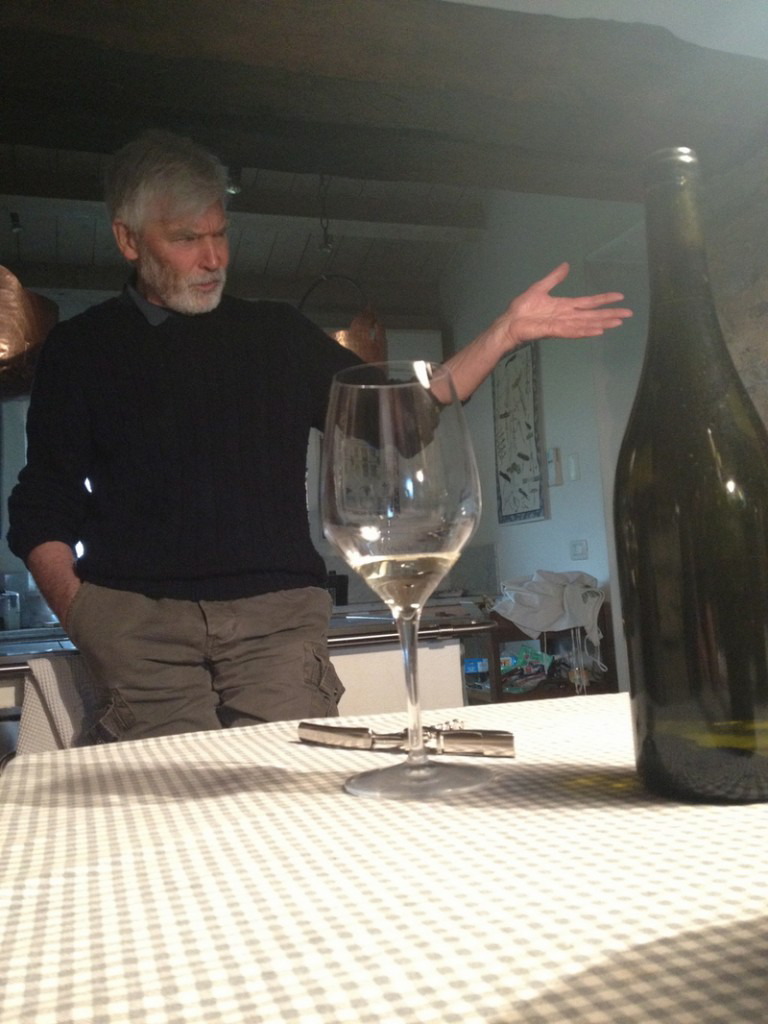Ferdinando Zanusso of i Clivi
“I was born in a vineyard. At a certain point my father was making wine but I did not follow him. I was working for a French company. I went to Africa. At the time of the big Swahili drought of the 70’s/80’s. Then I left. I came home to lose all my money. Then I accepted a job with the United Nations. I went to many nice countries. The Sudan, and Somalia. I was in Somali when the restoration of 1980. It was quite an experience.
“By then I had bought a house with a vineyard behind near here. That is how I found out, in fact, if you do a small amount it still takes all your time, so we took over this place, and that is how it went.
We ask what wines he likes to drink besides his own: “I like Burgundies, a lot of Northern Rhone, and the German whites. I also like the wines of the Loire. Some of them. I spent twenty years with the French so I had opportunities to taste all of them. You have to drink it when it is at its best. It is not easy. In fact, it is very difficult.
In hearing his answer we ask if he thinks his wines are like any of those he has listed: “In making wine, my goal is not to copy, but to get the best out of what we have, this soil, this climate. We can learn a lot from the Burdundian’s hundreds of years of history. We have also some, but more there. So, we have a lot to learn from the French, but it would be, in my opinion, a mistake to copy them. To compare white here to white there. Their problem is the climate. One or two years in 10 years is good. One main problem for them is acidity. They have to try and reduce it. Here, it is the opposite.
“The problem is completely different. Here we have more regular years but we have problems that are completely different than the French. For example, oak for them, it is a historical accident, but it is a way of giving them structure on off years. Here it is not only useless, it is counterproductive to add wood to wine that has everything in itself. Also, to macerate is a mistake. It adds elements of rusticity and elements that are on this table that interfere with the elements of the wine. Here, the complexity of white wine is reduced by oak or by maceration because then you put sort of a screen between you and the true character of the wine. To do these things introduces an element that is common, that interferes with the presentation of the particular character of the wine, of the terroir. We have here, and also elsewhere a vineyard, and they have completely different characters.
“So, we have a lot to learn from the French, but we cannot follow them. We have completely different situations.”



[…] By Hawk Wakawaka. […]
Great post and very interesting thoughts from mr Zanusso
Grazie!
[…] Further reading on i Clivi: from McDuff and Wakawaka […]
[…] son Mario of I Clivi definitely represent the salty character of the aforementioned Ribolla. As I listened to them talk about their wine, I got the feeling they really just wanted to say, "This is how we choose to make […]